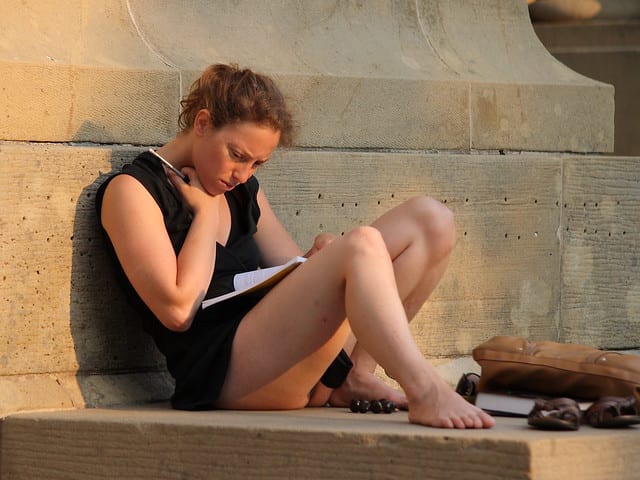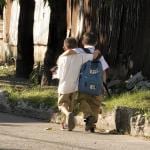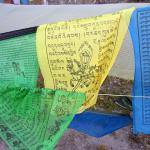
Where Can We Go To Find Wisdom?
Some of us experience our lives as never-ending paths we follow in pursuit of wisdom.
We may struggle for years exploring various aspects of life before we feel we are anywhere near wisdom. Some of us experience our search as hopeless and conclude we wil never find wisdom.
Many of us explore a variety of places in our search for wisdom. Some of us try to discover wisdom in books. We read words written centuries ago and hope the older the words the more wisdom they hold. A few of us try to read as many books with as much wisdom as we can find and compare them. We may find the ancient wisdom in these books confuses us more than we were before we started reading them.
Others of us choose to search for wisdom in more emotional ways. We do not seek wisdom of the mind as much as wisdom of the heart. Our search for wisdom is more about our passions and our lives than about analyzing ancient writings. Some of us explore poetry or music, or look for wisdom in our relationships. We may also find this path to wisdom confusing and painful.
A few of us believe we will find wisdom not with our minds or our hearts, but with our physical bodies. Some of us trust what we experience in our own bodies more than what ideas or emotions tell us. We may decide to become as strong and healthy as we can in our bodies to give us more years to search for wisdom. Many of us believe in the wisdom of fitness and health.
We may search for wisdom from other sources, or some combination of all of them.
Where do we hope to find wisdom?
Where Do Monks Look to Find Wisdom?
There was a monk at New Camaldoli, the hermitage where I am a lay Oblate, who wrote books about wisdom. Bruno Barnhart wrote several books and two in particular about wisdom Christianity.
Brother Bruno and I never had a personal conversation, but his sense of humor made me smile. I always thought he looked like Moses, or maybe God. He was tall and had a wide beard. Several years ago I decided I would read his books about wisdom, Second Simplicity and The Future of Wisdom.
These are not how-to guides or books about wisdom made simple. Each year I would add them to the list of books I wanted to read that year, and they would be left over at the end of the year.
The portions of Brother Bruno’s books I have read so far do not highlight his playful sense of humor. They are not the kind of books I would curl up with in a comfortable chair to relax or to remember him.
I need to spend more time reading and reflecting about what Brother Bruno wrote. It takes wisdom to appreciate what he has written.
Brother Bruno explores other writers who have written about wisdom. He recognizes the significance of music, poetry, and other more emotional sources of insight about wisdom. There is also wisdom he describes which is more physical. What helps me the most, so far, in his writing is how he fits different pieces together to understand wisdom in spiritual life.
The ancient wisdom we can read and emotional wisdom we can gain, even our physical wisdom, need the context of spiritual life to fit together.
Part of the reason it is taking me so long to read Brother Bruno’s books is they require my reflection.
How Do We Know When We Find Wisdom?
I often find wisdom in some of the most unexpected places.
My expectations for wisdom are it comes primarily in the form of words from interacting with people. Reading what someone has written, formal presentations, intentional conversations are where I think I will find wisdom.
More and more I find wisdom as I reflect on what I have experienced. My search for wisdom is not about adding to my store of facts or experience, but about the time I spend in stillness.
Most of us receive more than enough information each day. We do not find wisdom is accumulating even more. Our wisdom comes from how we listen, how we process what we hear.
Wisdom is not about knowing more or experiencing more. The wisdom which becomes our own is what we put into practice.
We demonstrate we have gained and accepted wisdom, it has become ours, when it changes how we live. We know we have found wisdom when it becomes what we do.
Wisdom we do not put into practice is no more than a good idea. We know we have found wisdom when we can see how it helps us live differently.
Everyday Ways to Find Wisdom
We do not usually need more ideas, more emotional experiences, more strength to find wisdom. Sometimes all that new stimulation makes it more challenging to find wisdom.
I have come to see wisdom not as something we pursue, but part of the fabric of our worlds. We are not on a quest to find wisdom which is hidden somewhere. The wisdom we seek is all around us.
When I need to find wisdom it helps me to step out of my everyday routines. Sometimes I go to the beach or the mountains or the woods. There are times when it helps to stop in the middle of everyday life and listen for wisdom.
Sometimes wisdom comes to me while I am talking with someone else, and sometimes when I am not. The harder I work to search for wisdom, often, the less likely I am to find it.
Wisdom is not a wild animal to be found and put into a cage. We find wisdom and listen to what it has to tell us.
How do we expect to find wisdom today?
When did we find wisdom which has changed how we live most recently?
[Image by John Loo]
Greg Richardson is a spiritual life mentor and coach in Southern California. He is a recovering attorney and a lay Oblate with New Camaldoli Hermitage near Big Sur, California. Greg’s website is StrategicMonk.com and his email address is [email protected].












